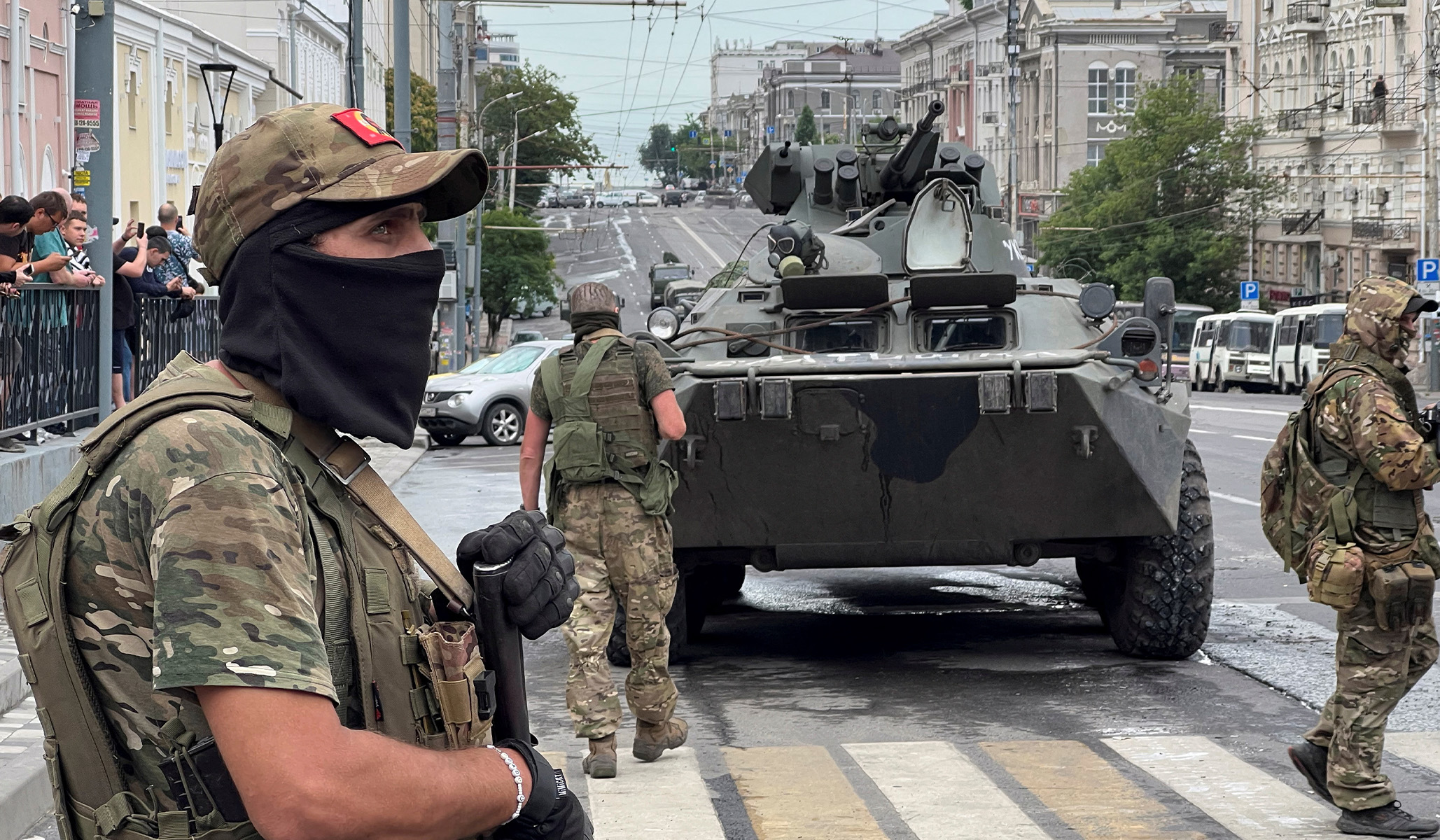


Not everything is clear yet, but I think it’s possible to at least venture an initial read of what happened over the weekend in Russia.
Yevgeny Prigozhin’s famed mercenary force, PMC Wagner Group, was set to be liquidated by July and incorporated into the regular armed forces of the Russian state. Prigozhin’s march to Rostov and toward Moscow was a protest of this action. He had support from his men to do this because Wagner Group has been an effective fighting force, and many of his men do not want to be led by Ministry of Defense commanders. Prigozhin has argued that those commanders waste good soldiers in “meat grinder” battlefield tactics.
At some point a deal was worked out, and Wagner turned around before there was serious bloodshed or chaos.
Most commentators spent the weekend explaining how the whole exercise demonstrated the weakness of Vladimir Putin and his state. This was understandable. After all, Putin was negotiating with a man whom he had called a terrorist hours earlier. But most speculated that the result of the deal would be major changes in the Ministry of Defense, congenial to Prigozhin.
So far there is no evidence of that at all. Right now, the details are said to be that Prigozhin will be relocated to Belarus, and the liquidation and regularization of Wagner Group will proceed.
If that is the substance of it, then Putin has effectively consolidated power in the Russian government and eliminated a potential rival who commanded a military force serious enough to stage a real coup. The questions are: At what cost? Wagner’s claims to perform better than the regulars seem credible. Will the elimination of Wagner leave the Russian army more vulnerable to the Ukrainian counteroffensive?
Is Putin triaging his problems, trading the effectiveness of the forces fighting in Ukraine for political stability in the Kremlin? Or was this simply opportunistic? Wagner had already been pulled to the rear. So far Russian defenses are holding relatively well. Perhaps Putin thought he could consolidate control ahead of what will become a stalemate over the summer and perhaps a set of negotiations by winter? Wagner’s power was a growing problem for the Kremlin and a sign of the dispersed authority. Putin’s latest speech still calls Prigozhin a terrorist. That doesn’t seem like Putin capitulating to Wagner Group’s demands.
Perhaps the only thing Wagner’s march accomplished was delaying Prigozhin’s fate by a few days or weeks.
